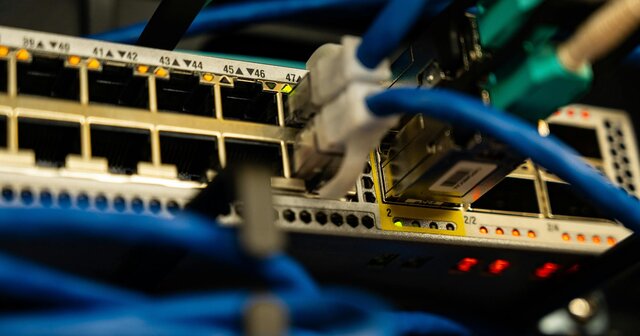
For two decades, Democratic commissioners on the Federal Communications Commission have been trying to regulate the internet, using a doctrine known as “net neutrality.” But their attempts to impose their regulatory authority on the internet ended on Jan. 2 when the U.S. Court of Appeals for the Sixth Circuit unanimously struck down the FCC’s net neutrality regulations, which would have reclassified internet service providers as common carriers subject to public-utility-style regulation.
Previous courts that upheld the FCC’s power to regulate the internet relied on the judicial doctrine of “Chevron deference.” Chevron required that courts defer to what the U.S. Supreme Court termed “permissible” agency interpretations of statutes governing the agency, even if a court would otherwise interpret the statute differently. Of course, federal agencies used Chevron deference to expand their authority, based on interpretations of laws that were often nothing like what Congress intended.
In summer 2024, the Supreme Court forcefully rejected Chevron deference, holding that “agency interpretations of statutes—like agency interpretations of the Constitution—are not entitled to deference.” The majority opinion added that “even when an ambiguity happens to implicate a technical matter, it does not follow that Congress has taken the power to authoritatively interpret the statute from the courts and given it to the agency.”
Without the shield of Chevron deference, the FCC’s claim to regulatory powers over the internet could not stand. The FCC had claimed that the 1934 Communications Act gave it these powers, even though the Congress of 1934 clearly was not thinking about whether the internet of 2025 should be regulated. The appeals court explicitly and rightly rejected the claim that in 1934 Congress gave the FCC regulatory powers over the internet.
It is important to note that while the term “net neutrality” may sound appealing, it is not what most people think it is. One might think that it means that internet searches results must be presented in a neutral manner, or that speech on the internet may not be censored. But net neutrality as defined by FCC regulation is nothing of the sort.
In the FCC’s regulation, net neutrality applies only to internet service providers such as cable and cellphone companies. It requires that they treat all internet traffic equally and not impose caps on data usage or slow the traffic of large data users. These practices might have mattered more a few years ago, when capacity limitations were more significant. Today, however, network capacities are much greater, and most internet users now have unlimited data plans, making net neutrality much less relevant.
Notably, net neutrality has never applied to most of the largest companies on the internet, including Google, Meta (Facebook), Netflix, and X (Twitter). Some of these tech giants were the biggest supporters of net neutrality regulation because it gave them a competitive advantage over internet service providers in markets, like online advertising, where regulated and exempt tech companies compete.
Despite technological advances that make net neutrality concerns largely irrelevant, the FCC continued to press for it. If the FCC could regulate in the name of net neutrality, it could also regulate all kinds of other business conduct on the internet, even though Congress has given the agency no such regulatory powers. And it’s important to note – if Congress wants to pass net neutrality into law, it is free to do so.
The net neutrality fight is continues at the state level, with California, Colorado and Washington all passing their own laws recently. State laws have their own constitutional problems including the dormant commerce clause, which prohibits states from placing burdens on the flow of interstate commerce. Michigan has not enacted its own net neutrality law, though Gov. Gretchen Whitmer said when she first ran in 2018 that it would be a priority for her administration.
In the early days of internet commerce, President Bill Clinton’s 1997 “Framework for Global Electronic Commerce” advocated that “governments must adopt a market-oriented approach to electronic commerce, one that facilitates the emergence of a global, transparent, and predictable environment to support business and commerce.” Now that an appeals court has rejected the FCC’s attempt to impose regulatory power over the internet, commerce and other activity on it is once again guided by the market process, and not by regulators seeking to expand their powers.
Permission to reprint this blog post in whole or in part is hereby granted, provided that the author (or authors) and the Mackinac Center for Public Policy are properly cited.
Get insightful commentary and the most reliable research on Michigan issues sent straight to your inbox.

The Mackinac Center for Public Policy is a nonprofit research and educational institute that advances the principles of free markets and limited government. Through our research and education programs, we challenge government overreach and advocate for a free-market approach to public policy that frees people to realize their potential and dreams.
Please consider contributing to our work to advance a freer and more prosperous state.

Donate | About | Blog | Pressroom | Publications | Careers | Site Map | Email Signup | Contact